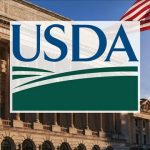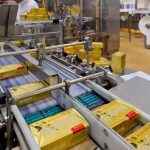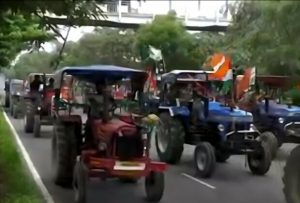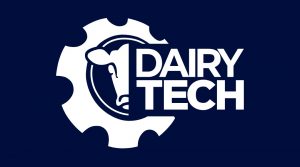
As last year came to a close, the Animal Agriculture Alliance team predicted that ‘sustainability’ would be the major word of 2021 due to the increased focus on the environment and climate change by the media and policymakers. Although that is the same word we had predicted for 2020 and ended up being proven wrong by the unprecedented pandemic, things are different now.
While just about everything in 2020 was completely overshadowed by COVID-19, there will likely now be a renewed focus on many of the conversations we were having pre-coronavirus. As vaccines are rolled out and administered, it is allowing us to settle in to the “new normal.”
One of the biggest drivers of the current uptick in sustainability conversations is the United Nations’ Food Systems Summit (FSS), scheduled to take place in September of this year. According to the official FSS page, the event will “launch bold new actions to transform the way the world produces and consumes food.”Outcomes from the FSS will not only affect agriculture – it’s sure to influence consumer buying decisions as well. According to a recent study, “Sustainability in a Pandemic,” the pandemic hasn’t reduced the importance of sustainability to the general public, with over half of participants surveyed indicating that it is extremely or very important. It’s also of note that, to consumers, the term “sustainability” includes much more than the environment, as nearly half tie sustainability with social and economic issues as well. Other key findings from the report include:
Overall, consumers are more likely to trust smaller operators – farmers, manufacturers, and restaurants – than larger organizations. The media is now the least trusted player in the food system.
Consumers are placing a greater emphasis on specific claims rather than vague, broad claims. In particular, claims reducing the impact of ingredients and specific efforts against animal welfare have the broadest impact.
The only issues that are more important to consumers than sustainability are hygiene and safety related (mask wearing, sanitizing, and so forth.).
Generation Z, millennials, and those placing an emphasis on sustainability are all significantly more likely to pay more for food. This may help support ongoing sustainability efforts in agriculture, manufacturing, restaurants, and the food industry.
Now is the time to join conversations surrounding sustainability to share the dairy community’s commitment to continuous improvement and also provide personal examples from real-life farms working every day to reduce their impact on the environment. The Animal Agriculture Alliance, trade associations, checkoff programs, and more are working to highlight the improved sustainability practices and reduce the carbon footprint of our favorite animal proteins. However, it has been proven time and time again that consumers want to hear from the farmers producing their milk and cheese – not just the associations representing them. Elevating farmers’ voices is one of the most effective ways to get our story across.
Conversations and goals related to sustainability are not something that any of us can tackle alone. It will take the work of each of us in the agriculture community engaging in discussions, working in unison and sharing our stories to make an impact, and we need everyone to join the conversation now.
The FSS may be scheduled for September, but conversations are already underway and “game-changing” solutions are being accepted and considered. That’s why it’s so important that we are proactively engaged and involved in conversations surrounding sustainability ¾ online, in our state capitols, with our favorite restaurant brands, and more.
Sustainability is so much bigger than the dairy or animal agriculture industry, but we still have to do our part to ensure a seat at the table so our voices can be heard.
The Alliance’s Sustainability Impact Report is a great resource to link and share as you have conversations about these crucial topics. Whatever your role in animal agriculture is, we need your voice in the sustainability dialogue, in 2021 and beyond.
Emily Solis is the communications specialist at the Animal Agriculture Alliance. In her role, she works to execute the Alliance’s issues management and communications strategy.























